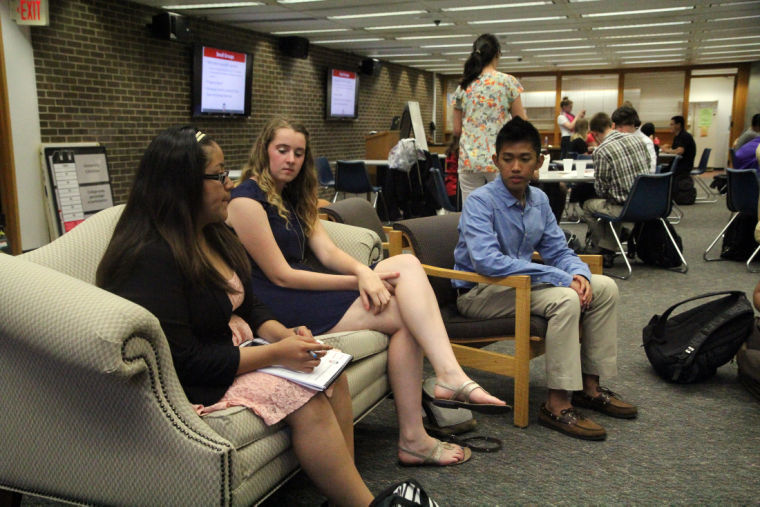Research Rookies connects students, mentors
Lizabeth Roman, sophomore community leadership & civic major, Kathryn Voight, freshman history major, and Zharfan Irawan, accounting major, gather together Monday night to discuss their various research topics in their classes at the Founders Memorial Library during the monthly Research Rookies meeting.
September 10, 2013
Research Rookies members attended their second monthly meeting since the beginning of the semester on Monday.
The Research Rookies program is one of multiple research opportunities provided to students. One aspect that makes the Research Rookies program unique is that it caters to underclassmen who may not have previous research experience. A freshman, sophomore or transfer student chooses a faculty mentor who works in the student’s area of interest. The student and mentor then spend an entire academic year creating and carrying out an original research project, culminating in a poster presentation at the Undergraduate Research and Artistry Day in the spring.
Students are required to spend about five to 10 hours per week working on the project as well as maintaining at least a 2.5 GPA and attending monthly meetings with the Research Rookies staff. Upon completion of the program, students are awarded a $500 stipend.
“There isn’t really a solid amount of information that compares a person’s motivation levels between interview styles and self-report styles,” said Thomas Bunge, sophomore psychology major and Research Rookie. “We’re hoping to find a relationship between them and publish the findings.”
Findings for Research Rookie projects can extend beyond academic journals.
“We’re trying to figure out how to calm down 911 operators,” said freshman psychology major Ashley Sands. “They are at a high risk for PTSD because of their job, which wasn’t really anticipated. We’re mainly hoping to accomplish a way to provide stress relief in a short amount of time while these people are working.”













